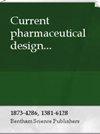Inhibition of Colorectal Cancer Metastasis by Total Flavones of Abelmoschus Manihot via Lncrna AL137782-mediated STAT3/EMT Pathway Regulation
IF 2.6
4区 医学
Q2 PHARMACOLOGY & PHARMACY
引用次数: 0
Abstract
Background: Colorectal cancer (CRC) ranks among the most lethal malignancies globally, particularly following metastasis which results in poor prognosis. In recent years, CRC incidence in China has persistently increased. Total flavonoids (TFA) from Abelmoschus manihot, a natural compound, are recognized for their anti-inflammatory, analgesic, and antioxidant properties. However, despite extensive research into the therapeutic potential of TFA, coverage of its role in cancer treatment is notably lacking. To address this research void, our study aims to unveil the role and potential mechanisms of TFA in treating CRC. Methods: We conducted a series of experiments to assess the impact of TFA on CRC cells. Two specific CRC cell lines, DLD-1 and HCT116, were employed in cell proliferation, colony formation, flow cytometry, and cell migration assays. Additionally, to test the in vivo effects of TFA, we developed a nude mouse xenograft tumor model to assess TFA's impact on tumor growth and liver metastasis. Furthermore, we meticulously analyzed the gene expression differences between CRC cells pretreated with TGF-β and those treated with TFA using RNA-seq technology. We also examined the molecular mechanisms of TFA and assessed the expression of proteins related to the STAT3/EMT signaling pathway through Western blotting and siRNA technology. Results: Our research findings reveal for the first time the effect of TFA on CRC cells. Result shows that TFA could suppress cell proliferation, migration, and induce apoptosis. In vivo results showed that TFA inhibited tumor growth and liver metastasis. Molecular mechanism studies have shown that TFA exerts these effects by upregulating the expression of non-coding RNA AL137782, inhibiting the EMT/STAT3 signaling pathway. These results suggest that TFA is a potential candidate for mitigating CRC metastasis. Conclusion: However, further research is needed to comprehensively evaluate the efficacy and safety of TFA in animal models and clinical settings. These findings bring great hope for the development of innovative CRC treatment methods.通过 Lncrna AL137782 介导的 STAT3/EMT 通路调节,马齿苋总黄酮抑制结直肠癌转移
背景:结直肠癌(CRC)是全球致死率最高的恶性肿瘤之一,尤其是转移后预后较差。近年来,中国的 CRC 发病率持续上升。从天然化合物马齿苋中提取的总黄酮(TFA)具有抗炎、镇痛和抗氧化作用。然而,尽管对反式脂肪酸的治疗潜力进行了广泛的研究,但有关其在癌症治疗中的作用的报道却明显不足。为了填补这一研究空白,我们的研究旨在揭示反式脂肪酸在治疗 CRC 中的作用和潜在机制。研究方法我们进行了一系列实验来评估反式脂肪酸对 CRC 细胞的影响。在细胞增殖、集落形成、流式细胞术和细胞迁移实验中使用了两种特定的 CRC 细胞系 DLD-1 和 HCT116。此外,为了测试反式脂肪酸的体内效应,我们建立了裸鼠异种移植肿瘤模型,以评估反式脂肪酸对肿瘤生长和肝转移的影响。此外,我们还利用 RNA-seq 技术仔细分析了经 TGF-β 预处理的 CRC 细胞与经 TFA 处理的 CRC 细胞之间的基因表达差异。我们还研究了TFA的分子机制,并通过Western印迹和siRNA技术评估了STAT3/EMT信号通路相关蛋白的表达。研究结果我们的研究结果首次揭示了反式脂肪酸对 CRC 细胞的影响。结果表明,反式脂肪酸能抑制细胞增殖、迁移并诱导细胞凋亡。体内研究结果表明,反式脂肪酸可抑制肿瘤生长和肝转移。分子机制研究表明,反式脂肪酸通过上调非编码 RNA AL137782 的表达、抑制 EMT/STAT3 信号通路来发挥上述作用。这些结果表明,反式脂肪酸是减轻 CRC 转移的潜在候选药物。结论然而,要全面评估 TFA 在动物模型和临床环境中的有效性和安全性,还需要进一步的研究。这些发现为开发创新的 CRC 治疗方法带来了巨大希望。
本文章由计算机程序翻译,如有差异,请以英文原文为准。
求助全文
约1分钟内获得全文
求助全文
来源期刊
CiteScore
6.30
自引率
0.00%
发文量
302
审稿时长
2 months
期刊介绍:
Current Pharmaceutical Design publishes timely in-depth reviews and research articles from leading pharmaceutical researchers in the field, covering all aspects of current research in rational drug design. Each issue is devoted to a single major therapeutic area guest edited by an acknowledged authority in the field.
Each thematic issue of Current Pharmaceutical Design covers all subject areas of major importance to modern drug design including: medicinal chemistry, pharmacology, drug targets and disease mechanism.

 求助内容:
求助内容: 应助结果提醒方式:
应助结果提醒方式:


